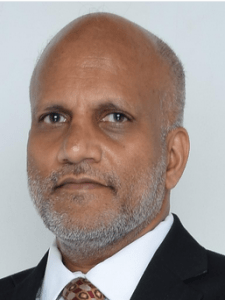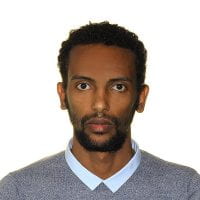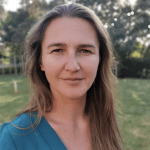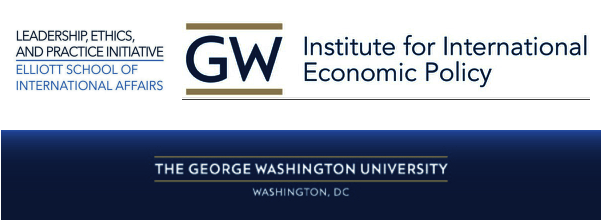March 1st, Wednesday 2023
Zoom and In-Person
Speaker:
LIS Data Centre
Institute for International Economic Policy (IIEP)
At the Elliott School of International Affairs
March 1st, Wednesday 2023
Zoom and In-Person
Speaker:
LIS Data Centre
Wednesday, March 2nd, 2022
8:30 – 10:00 a.m. EST / 7:00 – 8:30 p.m. IST
via Zoom
We were pleased to invite you to the sixth webinar in the 2021-2022 Envisioning India series, co-sponsored by the Sigur Center for Asian Studies and the Institute for International Economic Policy. This is a platform for dialogue and debate. We invite you to engage with us in this series of important discussions.
This event featured Professor Anirudh Krishna of Duke University to discuss “Understanding Poverty Dynamics and the Impact of the Pandemic.” Dr. Sekhar Bonu (NITI Aayog, India) and Christian Oldiges (UNDP) provided discussant remarks.
In this talk, Professor Anirudh Krishna discussed how income- and consumption-based measures are handy but provide an ephemeral and incomplete assessment of people’s underlying poverty status. Measures based on assets and capabilities more reliably reflect people’s structural situations, providing a better handle on sustained earning ability. He examined changes in longer-term poverty over the Covid-19 pandemic using the Stages-of-Progress method. He selected locations where he had collected household-level data several years earlier. On-the-ground surveys in one rural part undertaken in July and August 2021 show that while households’ incomes fell sharply, there was no accretion of longer-term poverty. In urban slums, however, structural poverty increased; assets and capabilities are considerably eroded. Mounting the appropriate response requires a fine-grained approach; because of differences in local economies, state and national averages are misleading.
The Envisioning India series is organized under the stewardship of IIEP Director Jay Shambaugh, Professor of International Affairs and Professor of Economics, and IIEP Distinguished Visiting Scholar Ajay Chhibber.
Abstract: Income- and consumption-based measures are handy but provide an ephemeral and incomplete assessment of people’s underlying poverty status. Measures based on assets and capabilities more reliably reflect people’s structural situations, providing a better handle on sustained earning ability. We examine changes in longer-term poverty over the Covid-19 pandemic using the Stages-of-Progress method. We select locations where we had collected household-level data several years earlier. On-the-ground surveys in one rural part undertaken in July and August 2021 show that while households’ incomes fell sharply, there was no accretion of longer-term poverty. In urban slums, however, structural poverty increased; assets and capabilities are considerably eroded. Mounting the appropriate response requires a fine-grained approach; because of differences in local economies, state and national averages are misleading.
About the Speaker
 Anirudh Krishna (PhD in Government, Cornell University, 2000; Master’s in Economics, Delhi University, 1980) is the Edgar T. Thompson Professor of Public Policy and Political Science at Duke University. His research of the past 25 years investigates how poor communities and individuals cope with the structural and personal constraints that result in poverty and powerlessness. Krishna has written more than seventy journal articles, and has eight books, including One Illness Away: Why People Become Poor and How they Escape Poverty and The Broken Ladder: The Paradox and the Potential of India’s One-Billion. For this body of work, Krishna was awarded an honorary doctorate by Uppsala University, Sweden, and received other academic awards. Before returning to academia, Krishna spent 14 years with the Indian Administrative Service, managing diverse rural and urban development initiatives. He has consulted with the World Bank, the United Nations, national governments, and non-government organizations.
Anirudh Krishna (PhD in Government, Cornell University, 2000; Master’s in Economics, Delhi University, 1980) is the Edgar T. Thompson Professor of Public Policy and Political Science at Duke University. His research of the past 25 years investigates how poor communities and individuals cope with the structural and personal constraints that result in poverty and powerlessness. Krishna has written more than seventy journal articles, and has eight books, including One Illness Away: Why People Become Poor and How they Escape Poverty and The Broken Ladder: The Paradox and the Potential of India’s One-Billion. For this body of work, Krishna was awarded an honorary doctorate by Uppsala University, Sweden, and received other academic awards. Before returning to academia, Krishna spent 14 years with the Indian Administrative Service, managing diverse rural and urban development initiatives. He has consulted with the World Bank, the United Nations, national governments, and non-government organizations.
About the Discussants
 Dr. Sekhar Bonu joined as the Director General of Development Monitoring and Evaluation Office (DMEO) in April 2019. The Government established DMEO in September 2015 as an attached office of the NITI Aayog to fulfil the monitoring and evaluation mandates assigned to NITI Aayog. Before joining NITI Aayog, Dr. Bonu worked with the Asian Development Bank (ADB) in Manila for 15 years. At ADB, he worked in health, urban infrastructure development and regional cooperation, mainly in South Asia. Dr. Bonu worked in the Indian Administrative Services and served as a civil servant in Rajasthan between 1987-2003, among others, as district magistrate, director of primary and secondary education, chief executive officer of state-owned Enterprises. Dr. Sekhar Bonu has a PhD from Johns Hopkins University and is a Chartered Financial Analyst charter holder. He has a wide range of research and operational interests and has published in peer-review journals.
Dr. Sekhar Bonu joined as the Director General of Development Monitoring and Evaluation Office (DMEO) in April 2019. The Government established DMEO in September 2015 as an attached office of the NITI Aayog to fulfil the monitoring and evaluation mandates assigned to NITI Aayog. Before joining NITI Aayog, Dr. Bonu worked with the Asian Development Bank (ADB) in Manila for 15 years. At ADB, he worked in health, urban infrastructure development and regional cooperation, mainly in South Asia. Dr. Bonu worked in the Indian Administrative Services and served as a civil servant in Rajasthan between 1987-2003, among others, as district magistrate, director of primary and secondary education, chief executive officer of state-owned Enterprises. Dr. Sekhar Bonu has a PhD from Johns Hopkins University and is a Chartered Financial Analyst charter holder. He has a wide range of research and operational interests and has published in peer-review journals.
 Christian Oldiges is a Development Economist, currently serving as Policy Specialist at the Inclusive Growth team of UNDP/BPPS, New York. He brings more than 10 years of experience in the fields of development economics, policy advocacy and social protection. Previously, as Director of Policy Research at the Oxford Poverty and Human Development Initiative (OPHI), University of Oxford, he has been directly involved in developing national MPIs with governments in South Asia and sub-Saharan Africa. In postdoctoral studies at Oxford, he has written about how 270 million people moved out of multidimensional poverty in India within a decade, poverty reduction and its interlinkages with COVID-19, migration, and conflict, as well as on workfare programs and food security in India. He holds a PhD in Economics (Heidelberg University, Germany) and has studied at Hindu College and the Delhi School of Economics, Delhi University.
Christian Oldiges is a Development Economist, currently serving as Policy Specialist at the Inclusive Growth team of UNDP/BPPS, New York. He brings more than 10 years of experience in the fields of development economics, policy advocacy and social protection. Previously, as Director of Policy Research at the Oxford Poverty and Human Development Initiative (OPHI), University of Oxford, he has been directly involved in developing national MPIs with governments in South Asia and sub-Saharan Africa. In postdoctoral studies at Oxford, he has written about how 270 million people moved out of multidimensional poverty in India within a decade, poverty reduction and its interlinkages with COVID-19, migration, and conflict, as well as on workfare programs and food security in India. He holds a PhD in Economics (Heidelberg University, Germany) and has studied at Hindu College and the Delhi School of Economics, Delhi University.
Monday, February 21st, 2022
11:00 – 12:15 p.m. ET
via Zoom
We were pleased to invite you to a joint virtual event with the Oxford Poverty and Human Development Initiative (OPHI) and the United Nations Development Programme (UNDP) Human Development Report Office (HDRO) on Monday, February 21st, 2022. This event featured Kehinde Omotoso presenting “Profiling Gendered Multidimensional Poverty and Inequality in Post-Apartheid South Africa” and Jacob Assa as a discussant.
About the Speaker:
 Kehinde O. Omotoso holds a PhD in Economics from the University of Pretoria, South Africa. Her research covers a wide range of development issues relating to multidimensional poverty, health, gender, climate change and food security. Her research and policy experience spans over a decade during which she has gained a deep understanding of the microeconomic factors that determine poverty and health inequality in sub-Saharan Africa and beyond. She contributes regularly to the policy discourse on multidimensional poverty in the context of sustainable development goals (SDGs). She has presented several research papers in both national and international conferences, seminars and workshops. She has a number of research articles published in reputable journals. She is currently on a post-doctoral research fellowship
Kehinde O. Omotoso holds a PhD in Economics from the University of Pretoria, South Africa. Her research covers a wide range of development issues relating to multidimensional poverty, health, gender, climate change and food security. Her research and policy experience spans over a decade during which she has gained a deep understanding of the microeconomic factors that determine poverty and health inequality in sub-Saharan Africa and beyond. She contributes regularly to the policy discourse on multidimensional poverty in the context of sustainable development goals (SDGs). She has presented several research papers in both national and international conferences, seminars and workshops. She has a number of research articles published in reputable journals. She is currently on a post-doctoral research fellowship
About the Discussant:
 Jacob Assa is a Strategic Advisor with UNDP’s Regional Bureau for Africa. He began his U.N. career 22 years ago as a statistician and then chief of section (DESA/UNSD), focusing on macroeconomic aggregates and development indicators. In this role he was the chief editor of three flagship statistical publications. More recently Jacob worked as an economist focusing on both the least developed countries (at UN-OHRLLS) and UNDP’s Human Development Report (HDR). At UN-OHRLLS, he co-authored the annual SG’s report as well as the flagship publication – State of the LDCs. At UNDP, Jacob co-authored the two most recent HDRs – Inequality in Human Development (2019) and The next frontier: Human development and the Anthropocene (2020). He also developed UNDP’s proposal for a Multidimensional Vulnerability Index, which the Administrator has referred to as an example of thought leadership. Jacob holds a Ph.D. in Economics (2015) from the New School for Social Research and his doctoral dissertation – The Financialization of GDP: Implications for economic theory and policy – has been published as a book by Routledge. He has published in peer-reviewed journals on inequality and growth, financialization, peacebuilding and development, and the political economy of national accounting, most recently in the journals Ecological Economics and New Political Economy.
Jacob Assa is a Strategic Advisor with UNDP’s Regional Bureau for Africa. He began his U.N. career 22 years ago as a statistician and then chief of section (DESA/UNSD), focusing on macroeconomic aggregates and development indicators. In this role he was the chief editor of three flagship statistical publications. More recently Jacob worked as an economist focusing on both the least developed countries (at UN-OHRLLS) and UNDP’s Human Development Report (HDR). At UN-OHRLLS, he co-authored the annual SG’s report as well as the flagship publication – State of the LDCs. At UNDP, Jacob co-authored the two most recent HDRs – Inequality in Human Development (2019) and The next frontier: Human development and the Anthropocene (2020). He also developed UNDP’s proposal for a Multidimensional Vulnerability Index, which the Administrator has referred to as an example of thought leadership. Jacob holds a Ph.D. in Economics (2015) from the New School for Social Research and his doctoral dissertation – The Financialization of GDP: Implications for economic theory and policy – has been published as a book by Routledge. He has published in peer-reviewed journals on inequality and growth, financialization, peacebuilding and development, and the political economy of national accounting, most recently in the journals Ecological Economics and New Political Economy.
About the Series:
The Institute for International Economic Policy (IIEP) at George Washington University and the Oxford Poverty and Human Development Initiative (OPHI), with the support of the United Nations Development Programme’s Human Development Report office (UNDP HDRO), are pleased to host a special seminar series on the global Multidimensional Poverty Index (global MPI).
Bringing together the academic and policy spheres, this series of seminars will highlight topics such as race, ethnicity, gender, and caste, the statistical capacity of nations, social protection, the use of geospatial mapping in tracking poverty, poverty and refugees, and evaluating whether we’re on track to meet UN SDG Goal #1. The sessions will also include work that applies the global MPI methodology, the Alkire Foster method, to innovative measures.
Monday, February 14th, 2022
11:00 – 12:15 p.m. ET
via Zoom
We were pleased to invite you to a joint virtual event with the Oxford Poverty and Human Development Initiative (OPHI) and the United Nations Development Programme (UNDP) Human Development Report Office (HDRO) on Monday, February 14th, 2022. This event featured Sam Jones (UNU-WIDER) presenting “Extending Multidimensional Poverty Identification: From Additive Weights to Minimal Bundles.”
In this event, Sam Jones presented his paper which examines how in the popular class of multidimensional poverty measures introduced by Alkire and Foster (2011), a threshold switching function is used to identify who is multidimensionally poor. This paper shows that the weights and cut-off employed in this procedure are generally not unique and that such functions implicitly assume all groups of deprivation indicators of some fixed size are perfect substitutes. To address these limitations, he shows how the identification procedure can be extended to incorporate any type of positive switching function, represented by the set of minimal deprivation bundles that define a unit as poor. Furthermore, the Banzhaf power index, uniquely defined from the same set of minimal bundles, constitutes a natural and robust metric of the relative importance of each indicator, from which the adjusted headcount can be estimated. He demonstrates the merit of this approach using data from Mozambique, including a decomposition of the adjusted headcount using a ‘one from each dimension’ non-threshold function.
About the Speakers:
 Sam Jones is a Research Fellow at UNU-WIDER based in Mozambique, on extended leave from his position as an Associate Professor in the Department of Economics, University of Copenhagen. He is a versatile economist with expertise in microeconomic empirical methods, education, labour markets, development finance (including foreign aid) and policy macroeconomics. Sam’s work has been published in leading journals, such as Journal of Development Economics, World Bank Economic Review, American Journal of Agricultural Economics, Food Policy, Social Science & Medicine, Journal of Economic Inequality, World Development, Journal of Development Studies, African Development Review, and Journal of African Economies. Much of Sam’s academic research has focused on sub-Saharan Africa and he has previously worked extensively in Mozambique, spending over ten years as an advisor in the Ministry of Finance.
Sam Jones is a Research Fellow at UNU-WIDER based in Mozambique, on extended leave from his position as an Associate Professor in the Department of Economics, University of Copenhagen. He is a versatile economist with expertise in microeconomic empirical methods, education, labour markets, development finance (including foreign aid) and policy macroeconomics. Sam’s work has been published in leading journals, such as Journal of Development Economics, World Bank Economic Review, American Journal of Agricultural Economics, Food Policy, Social Science & Medicine, Journal of Economic Inequality, World Development, Journal of Development Studies, African Development Review, and Journal of African Economies. Much of Sam’s academic research has focused on sub-Saharan Africa and he has previously worked extensively in Mozambique, spending over ten years as an advisor in the Ministry of Finance.
About the Discussant:
 James Foster is the Oliver T. Carr, Jr. Professor of International Affairs, Professor of Economics, and Co-Director of the Institute for International Economic Policy at the George Washington University. He is also a Research Associate at the Oxford Poverty and Human Development Initiative at Oxford University. Professor Foster’s research focuses on welfare economics — using economic tools to evaluate and enhance the wellbeing of people. His work underlies many well-known social indices including the global Multidimensional Poverty Index (MPI) published annually by the UNDP in the Human Development Report, dozens of national MPIs used to guide domestic policy against poverty, the Women’s Empowerment in Agriculture Index (WEAI) at USAID, the Gross National Happiness Index of Bhutan, the Better Jobs Index of the InterAmerican Development Bank, and the Statistical Performance Index of the World Bank. Prof. Foster received his PhD in Economics from Cornell University and has a Doctorate Honoris Causa from Universidad Autónoma del Estado Hidalgo (Mexico).
James Foster is the Oliver T. Carr, Jr. Professor of International Affairs, Professor of Economics, and Co-Director of the Institute for International Economic Policy at the George Washington University. He is also a Research Associate at the Oxford Poverty and Human Development Initiative at Oxford University. Professor Foster’s research focuses on welfare economics — using economic tools to evaluate and enhance the wellbeing of people. His work underlies many well-known social indices including the global Multidimensional Poverty Index (MPI) published annually by the UNDP in the Human Development Report, dozens of national MPIs used to guide domestic policy against poverty, the Women’s Empowerment in Agriculture Index (WEAI) at USAID, the Gross National Happiness Index of Bhutan, the Better Jobs Index of the InterAmerican Development Bank, and the Statistical Performance Index of the World Bank. Prof. Foster received his PhD in Economics from Cornell University and has a Doctorate Honoris Causa from Universidad Autónoma del Estado Hidalgo (Mexico).
About the Series:
The Institute for International Economic Policy (IIEP) at George Washington University and the Oxford Poverty and Human Development Initiative (OPHI), with the support of the United Nations Development Programme’s Human Development Report office (UNDP HDRO), are pleased to host a special seminar series on the global Multidimensional Poverty Index (global MPI). Goal 1 of the Sustainable Development Goals (SDGs) is to end poverty in all its forms and dimensions. The global MPI offers a tool to make progress towards this goal.
Bringing together the academic and policy spheres, this series of seminars will highlight topics such as race, ethnicity, gender, and caste, the statistical capacity of nations, social protection, the use of geospatial mapping in tracking poverty, poverty and refugees, and evaluating whether we’re on track to meet UN SDG Goal #1. The sessions will also include work that applies the global MPI methodology, the Alkire Foster method, to innovative measures.
The seminars are taking place online on Mondays at 11 a.m. EST. They will be hosted by IIEP Professor James Foster and are open to everyone focused on improving the lived experience of those who are deprived.
Monday, May 10, 2021
10:00 a.m. EDT
Although forcibly displaced communities face many simultaneous deprivations in their daily lives, in access to education, food security, adequate housing, etc., there is relatively little research on how the multidimensional poverty of these populations differs in both level and composition from that of host communities. This paper presents a multi-country descriptive analysis of multidimensional poverty among forcibly displaced populations and host communities. The paper uses household survey data containing detailed household information and displacement-specific information from Ethiopia, Nigeria, Somalia, South Sudan, and Sudan to create a Multidimensional Poverty Index (MPI) that captures the overlapping deprivations experienced by poor individuals and households in these countries. It then uses this MPI to explore relationships between multidimensional poverty, displacement status, and gender of the household head, as well as examining the mismatches and overlaps between MPI and monetary poverty. The results reveal significant differences across displaced and host communities in all countries except Nigeria. In three of the countries (Ethiopia, South Sudan, Sudan) female-headed households have higher MPIs, while in Somalia, those living in male-headed households are more likely to be identified as multidimensionally poor. They also find mismatches between the proportion of people classified as poor by the MPI and the international $1.90/day monetary poverty line, which verifies the need for complementary measures when assessing deprivations among the forcibly displaced.
Meet the Presenter:
 Yeshwas Admasu Bogale is part of the Research Fellow in Forced Displacement program which is supported by the FCDO-UNHCR-WB program on building the evidence on forced displacement. He is working on the Gender Dimensions of Forced Displacement research program. In his current research, he examines the gender differences in access to resources and opportunities for restoring livelihoods among refugees in Ethiopia. His main research interests are in development economics and agricultural economics, with a special focus in applying impact evaluation techniques. He has a PhD in economics from Heriot-Watt University in United Kingdom and MSc in Economics from the University of Copenhagen.
Yeshwas Admasu Bogale is part of the Research Fellow in Forced Displacement program which is supported by the FCDO-UNHCR-WB program on building the evidence on forced displacement. He is working on the Gender Dimensions of Forced Displacement research program. In his current research, he examines the gender differences in access to resources and opportunities for restoring livelihoods among refugees in Ethiopia. His main research interests are in development economics and agricultural economics, with a special focus in applying impact evaluation techniques. He has a PhD in economics from Heriot-Watt University in United Kingdom and MSc in Economics from the University of Copenhagen.
Meet the Discussant:
 Anna Gaunt joined UNHCR’s Regional Bureau for East, the Horn and the Great Lakes in January 2020, taking up the role of Senior Livelihoods and Economic Inclusion Officer. She has over 18 years’ experience in the implementation of international donor-funded humanitarian and development programmes focusing on the economic inclusion of vulnerable populations in the Middle East and Africa.
Anna Gaunt joined UNHCR’s Regional Bureau for East, the Horn and the Great Lakes in January 2020, taking up the role of Senior Livelihoods and Economic Inclusion Officer. She has over 18 years’ experience in the implementation of international donor-funded humanitarian and development programmes focusing on the economic inclusion of vulnerable populations in the Middle East and Africa.
Anna re-established the Economic Inclusion Exchange East Africa and co-chairs the working group together with NRC. The forum includes members of regional INGOs, UN agencies, IFIs, CSOs, and research institutes across the humanitarian-development nexus operating in East Africa, the Horn and the Great Lakes region. It stimulates discussions, research, and sharing of best practices related to the livelihoods and economic inclusion of refugee, returnees, other persons in displacement and their host communities. It is an open platform for partners to discuss advocating, researching, investing and realizing projects that strengthen self-reliance and resilience, reduce the need of assistance, contribute to economies, increase protection and enhance durable solutions.
The Institute for International Economic Policy (IIEP) at George Washington University and the Oxford Poverty and Human Development Initiative (OPHI), with the support of the United Nations Development Programme’s Human Development Report office (UNDP HDRO), are pleased to host a special seminar series on the global Multidimensional Poverty Index (global MPI). Goal 1 of the Sustainable Development Goals (SDGs) is to end poverty in all its forms and dimensions. The global MPI 2020 offers a tool to make progress towards this goal.
Produced in partnership with the UNDP HDRO, the global MPI 2020 compares acute multidimensional poverty for 107 countries in developing regions and provides a detailed image of who is poor and how they are poor. It offers both a global headline and a fine-grained analysis covering 1,279 sub-national regions, and important disaggregation such as children, and people living in urban or rural areas, together with the indicator deprivations of each group. Bringing together the academic and policy spheres, this series of seminars will highlight topics such as sensitivity analyses, overlapping deprivations, changes over time (poverty trends), and inequality using the global data. The sessions will also include work that applies the global MPI methodology, the Alkire Foster method, to innovative measures.
The seminars are taking place online on Mondays at 10 a.m. EST. They will be hosted by IIEP Co-Director Professor James Foster and are open to everyone focused on improving the lived experience of those who are deprived.
Monday, March 1, 2021
10:00am – 11:15am
via WebEx
Inequality among the poor matters because it matters that the poorest poor are not left behind. Leaving them behind is very often the case, as they are at the crossroads of marginalized groups and it is very difficult for policies -even at sub-national levels- to actually and effectively reach them. In this paper we examine inequality within over 100 countries among the multidimensionally poor, as measured by the Global Multidimensional Poverty Index (G-MPI). We compare two approaches proposed so far for incorporating inequality into the measurement of multidimensional poverty. One is the ‘assimilated approach’, by which the poverty measure incorporates sensitivity to inequality among the poor, as it is the case of the MGamma class of poverty measures proposed by Alkire and Foster (2016, 2019); this uses a relative inequality measure. The other is the ‘complementary approach’, by which the poverty measure is complemented alongside the variance of deprivation scores among the poor, an absolute inequality measure.
We find that country rankings by absolute vs. relative inequality among the poor differ quite substantially, which suggests that the selection of one or the other type of inequality matters when only that aspect of poverty is evaluated. However, the country ranking by the G-MPI, which considers poverty incidence and intensity, is highly robust to the incorporation of inequality into measurement of poverty, either using the MGamma2 measure or complementing the G-MPI with the variance among the poor. In other words: bad things seem to go together. Countries with a higher proportion of their population in multidimensional poverty tend to have higher average poverty intensity, and such higher average intensity tends to be more unequally distributed among the poor. This does not mean that it does not matter to know and measure inequality among the poor. A high inequality among the poor signals the need to develop different kinds of policies according to different poverty intensities. Our understanding is that it is the distribution of the deprivation scores alongside the dimensional decomposition what can be more illuminating for designing effective policies to leave no-one behind.
About the speakers:
 Maria Emma Santos is an Assistant Professor at Dept. of Economics at Universidad Nacional del Sur and a CONICET Research Fellow at the Instituto de Investigaciones Económicas y Sociales del Sur, Bahia Blanca, Argentina. She is also a Research Associate to the Centro de Estudios para el Desarrollo Humano (CEDH) of Universidad de San Andres in Argentina, and to the Oxford Poverty and Human Development Initiative, at the University of Oxford, UK. Together with Sabina Alkire, she developed the Global Multidimensional Poverty Index, published in the Human Development Report since 2010. She works on measurement and analysis of multidimensional poverty.
Maria Emma Santos is an Assistant Professor at Dept. of Economics at Universidad Nacional del Sur and a CONICET Research Fellow at the Instituto de Investigaciones Económicas y Sociales del Sur, Bahia Blanca, Argentina. She is also a Research Associate to the Centro de Estudios para el Desarrollo Humano (CEDH) of Universidad de San Andres in Argentina, and to the Oxford Poverty and Human Development Initiative, at the University of Oxford, UK. Together with Sabina Alkire, she developed the Global Multidimensional Poverty Index, published in the Human Development Report since 2010. She works on measurement and analysis of multidimensional poverty.
 Heriberto Tapia has been a senior member of the writing-research team at the Human Development Report Office (HDRO) since 2014. Previously, he served in the Executive Office of UNDP (2012-2014) and in the Economic Commission for Latin American and the Caribbean (1998-2005). He has worked as a consultant to the IMF, UNDP and ECLAC. Furthermore, he has been a lecturer at Columbia University (New York), University of Chile (Santiago) and University Diego Portales (Santiago). Heriberto holds a Ph.D. in economics from Columbia University, and a Master’s degree in economics and a Commercial Engineering degree from the University of Chile.
Heriberto Tapia has been a senior member of the writing-research team at the Human Development Report Office (HDRO) since 2014. Previously, he served in the Executive Office of UNDP (2012-2014) and in the Economic Commission for Latin American and the Caribbean (1998-2005). He has worked as a consultant to the IMF, UNDP and ECLAC. Furthermore, he has been a lecturer at Columbia University (New York), University of Chile (Santiago) and University Diego Portales (Santiago). Heriberto holds a Ph.D. in economics from Columbia University, and a Master’s degree in economics and a Commercial Engineering degree from the University of Chile.
 Hector Moreno is a Research Officer at OPHI. He supports OPHI’s outreach team in building, updating and statistically assessing national multidimensional poverty indices (MPIs) in Asian and Latin-American countries. Previously, he served as Research Coordinator for the Human Development Research Office at the UNDP Mexico, and as Under Director of Poverty Methodologies for the Mexican government at CONEVAL. He has also been a consultant for private, public and international institutions. He has taught multiple courses in Statistics at Sciences Po Paris in France and a variety of courses in Economics at Universidad Iberoamericana in Mexico. He has refereed the Journal of Economic Inequality (Elsevier), the Politicas Públicas Journal (Tec de Monterrey) and the Review of Economics and Statistics (MIT). He holds a PhD in Economics (Paris School of Economics).
Hector Moreno is a Research Officer at OPHI. He supports OPHI’s outreach team in building, updating and statistically assessing national multidimensional poverty indices (MPIs) in Asian and Latin-American countries. Previously, he served as Research Coordinator for the Human Development Research Office at the UNDP Mexico, and as Under Director of Poverty Methodologies for the Mexican government at CONEVAL. He has also been a consultant for private, public and international institutions. He has taught multiple courses in Statistics at Sciences Po Paris in France and a variety of courses in Economics at Universidad Iberoamericana in Mexico. He has refereed the Journal of Economic Inequality (Elsevier), the Politicas Públicas Journal (Tec de Monterrey) and the Review of Economics and Statistics (MIT). He holds a PhD in Economics (Paris School of Economics).
 Sabina Alkire directs the Oxford Poverty and Human Development Initiative (OPHI). She is the Associate Professor of Development Studies in the Oxford Department of International Development at the University of Oxford. Her research interests include multidimensional poverty measurement and analysis, welfare economics, the capability approach, the measurement of freedoms and human development. From 2015–16, Sabina was Oliver T Carr Professor of International Affairs and Professor of Economics at George Washington University. Previously, she worked at the Global Equity Initiative at Harvard University, the Human Security Commission, and the World Bank’s Poverty and Culture Learning and Research Initiative. She holds a DPhil in Economics from the University of Oxford.
Sabina Alkire directs the Oxford Poverty and Human Development Initiative (OPHI). She is the Associate Professor of Development Studies in the Oxford Department of International Development at the University of Oxford. Her research interests include multidimensional poverty measurement and analysis, welfare economics, the capability approach, the measurement of freedoms and human development. From 2015–16, Sabina was Oliver T Carr Professor of International Affairs and Professor of Economics at George Washington University. Previously, she worked at the Global Equity Initiative at Harvard University, the Human Security Commission, and the World Bank’s Poverty and Culture Learning and Research Initiative. She holds a DPhil in Economics from the University of Oxford.
 James E. Foster is the Oliver T. Carr, Jr. Professor of International Affairs, Professor of Economics, and Co-Director of the Institute for International Economic Policy at the George Washington University. He is also a Research Associate at the Oxford Poverty and Human Development Initiative at Oxford University. Professor Foster’s research focuses on welfare economics — using economic tools to evaluate and enhance the wellbeing of people. His work underlies many well-known social indices including the global Multidimensional Poverty Index (MPI) published annually by the UNDP in the Human Development Report, dozens of national MPIs used to guide domestic policy against poverty, the Women’s Empowerment in Agriculture Index (WEAI) at USAID, the Gross National Happiness Index of Bhutan, the Better Jobs Index of the InterAmerican Development Bank, and the Statistical Performance Index of the World Bank. Prof. Foster received his PhD in Economics from Cornell University and has a Doctorate Honoris Causa from Universidad Autónoma del Estado Hidalgo (Mexico).
James E. Foster is the Oliver T. Carr, Jr. Professor of International Affairs, Professor of Economics, and Co-Director of the Institute for International Economic Policy at the George Washington University. He is also a Research Associate at the Oxford Poverty and Human Development Initiative at Oxford University. Professor Foster’s research focuses on welfare economics — using economic tools to evaluate and enhance the wellbeing of people. His work underlies many well-known social indices including the global Multidimensional Poverty Index (MPI) published annually by the UNDP in the Human Development Report, dozens of national MPIs used to guide domestic policy against poverty, the Women’s Empowerment in Agriculture Index (WEAI) at USAID, the Gross National Happiness Index of Bhutan, the Better Jobs Index of the InterAmerican Development Bank, and the Statistical Performance Index of the World Bank. Prof. Foster received his PhD in Economics from Cornell University and has a Doctorate Honoris Causa from Universidad Autónoma del Estado Hidalgo (Mexico).
This event and seminar series was jointly organized with the Oxford Poverty & Human Development Initiative (OPHI) and the UNDP Human Development Report Office.
May 2020
Elira Kuka (George Washington University, IZA, and NBER) and Na’ama Shenhav (Dartmouth College and NBER)
Abstract: This paper uses a panel of SSA earnings linked to the CPS to estimate the impact of increasing post-childbirth work incentives on mothers’ long-run career trajectories. We implement a novel research design that exploits variation in the timing of the 1993 reform of the Earned Income Tax Credit (EITC) around a woman’s first birth and in eligibility for the credit. We find that single mothers exposed to the expansion immediately after a first birth (“early-exposed”) have 3 to 4 p.p. higher employment in the 5 years after a first birth than single mothers exposed 3 to 6 years after a first birth (“late-exposed”). Ten to nineteen years after a first birth, early-exposed mothers have the same employment and hours as late-exposed mothers, but have accrued 0.5 to 0.6 more years of work experience and have 6 percent higher earnings. Incorporating long-run effects on EITC benefits and earnings increases the implied marginal value of public funds (MVPF) of the expansion. Our results suggest that there are steep returns to work incentives at childbirth that accumulate over the life-cycle.
JEL Codes: J16, J31, H2
Key Words: child penalty, EITC
August 2019
Barry Chiswick and Christina Houseworth
Abstract: This paper analyzes the status of being currently divorced among European and Mexican immigrants in the U.S., among themselves and in comparison to the native born of the same ancestries. The data are for males and females age 18 to 55, who married only once, in the 2010-2014 American Community Surveys.
Among immigrants, better job opportunities, measured by educational attainment, English proficiency and a longer duration in the U.S. are associated with a higher probability of being divorced. Those who married prior to migration and who first married at an older age are less likely to be divorced. Those who live in states with a higher divorce rate are more likely to be divorced. Thus, currently being divorced among immigrants is more likely for those who are better positioned in the labor market, less closely connected to their ethnic origins, and among Mexican immigrants who live in an environment in which divorce is more prevalent.
Key Words: Marriage, Divorce, Minorities, Immigrants, Gender, Human Capital
JEL Codes: J12, J15, J16, J24
February 2019
Shauna Downs, Jessica Fanzo, Jozefina Kalaj, Joachim Sackey, and Stephen C. Smith
Abstract: Mobile health (mHealth) interventions have the potential to improve infant and young child feeding (IYCF) practices; however, gaps in the literature remain regarding their design, implementation and effectiveness. The aims of this study were to: design a mHealth voice messaging intervention delivered to mothers and fathers targeting IYCF practices and examine its implementation and impact in households with children 6-23 months in three rural villages in Senegal. We conducted focus groups (n=6) to inform the intervention development. We then conducted a pilot study (n=47 households) to examine the impact of the intervention on IYCF practices of children 6-23 months. Voice messages were sent to the children’s mothers and fathers over a period of four weeks (2 messages/week; 8 messages in total), and 24-hour dietary recalls and food frequency questionnaires (FFQs) were conducted before and immediately after the implementation of the mHealth intervention to examine its impact on IYCF practices. Overall, 3 of the 8 behaviors increased and one decreased. There was a significant increase in the number of children that consumed fish (60% vs 94%; p=0.008) as measured by the 24-hour recall after the completion of the intervention. We also found significantly higher frequency of egg (p=0.026), fish (p=0.004) and thick porridge (p=0.002) consumption in the previous 7-days measured by the FFQ. Our findings suggest that voice messaging IYCF interventions in Senegal have the potential to improve IYCF behaviors among young children in the short term. Future research should entail scaling-up the intervention and examining its sustainability over the long-term.
JEL Classification: I15, O15; Q12
Keywords: Infant and young child feeding, mHealth, behavior change communication, nutrition, horticulture, farming groups
The Leadership, Ethics, and Practice Initiative and the Institute for International Economic Policy Presents:

This event is on the record and open to media.

January 2017
by Stephen C. Smith (George Washington University), Vida Bobić (George Washington University), Ram Fishman (Tel Aviv University), & Munshi Sulaiman (Save the Children)
by Stephen Smith (George Washington University)
by Sarah Baird (George Washington University), Joan Hamory Hicks (UC-Berkeley, CEGA), Michael Kremer (Harvard University, NBER), and Edward Miguel (UC-Berkeley, NBER)
August 2015
by Tony Castleman, James Foster, and Stephen C. Smith (George Washington University)
May 2012
by Stephen C. Smith (co-author Saudamini Das, University of Delhi)
by Chrysanthi Hatzimasoura
by James Foster
by Stephen C. Smith
by Stephen C. Smith
by James Foster
by James Foster
IIEP Working Paper 2010-21
by James Foster
by James Foster